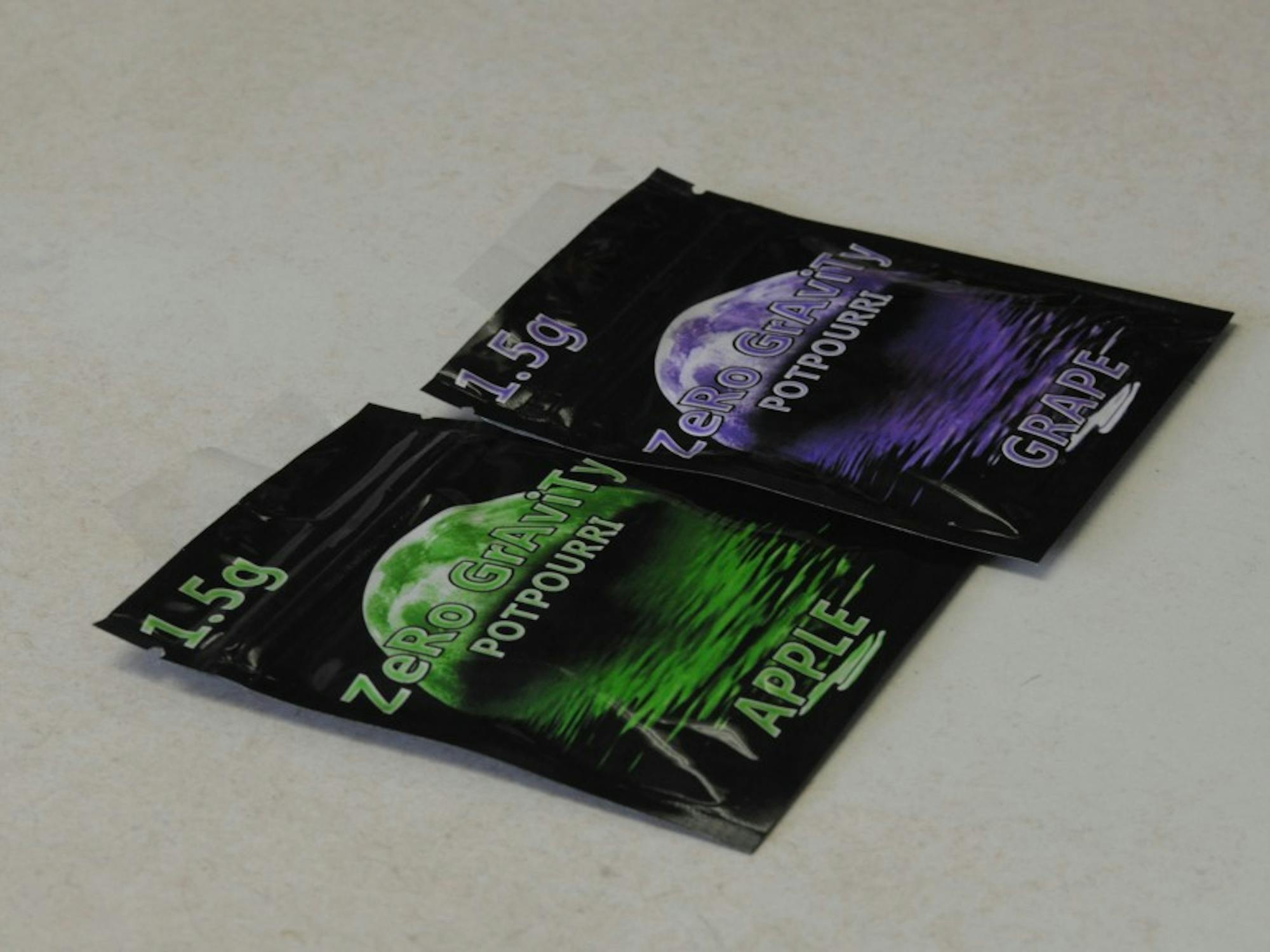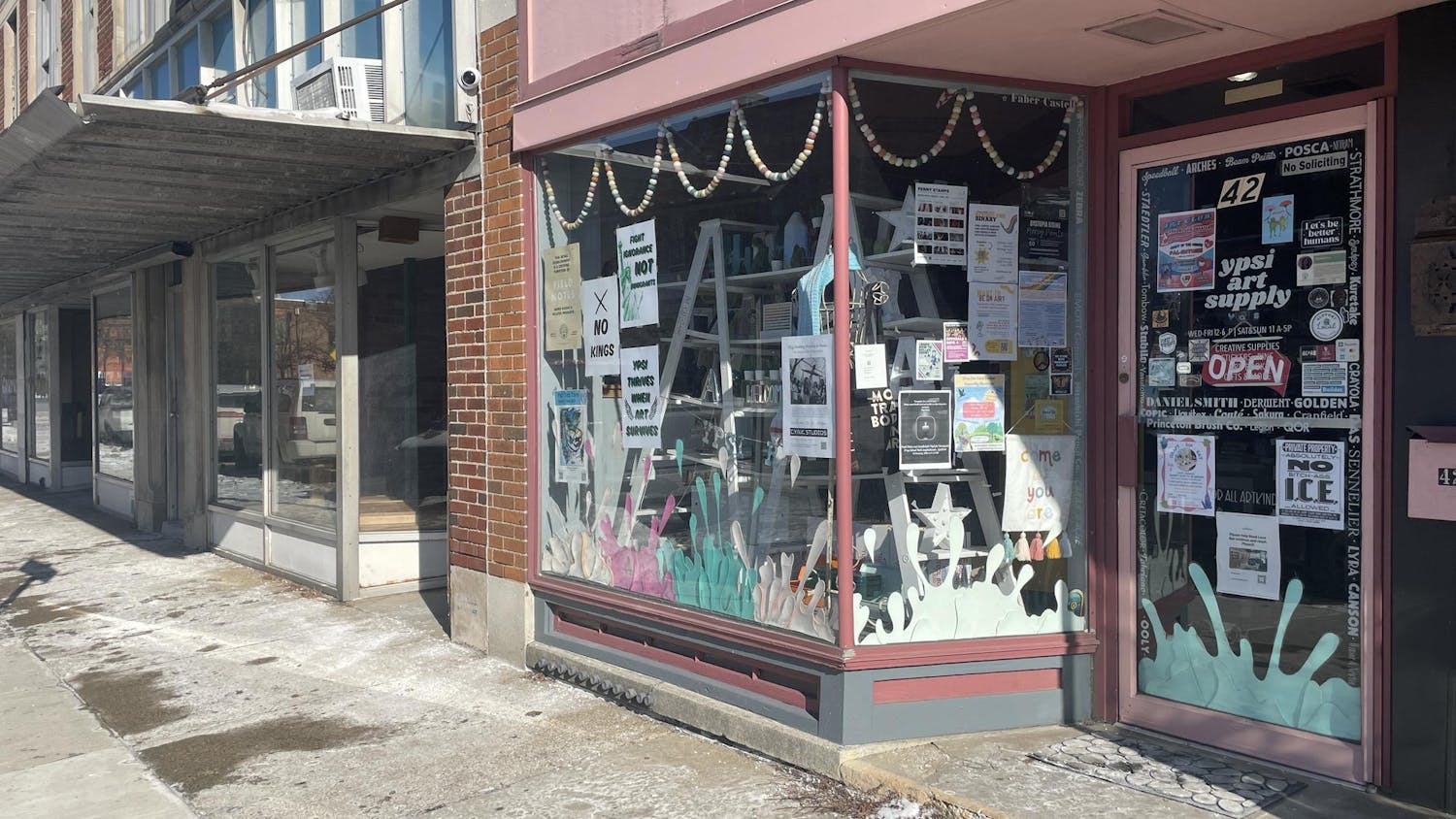The synthetic drugs K2 and “bath salts” have been linked to suicides, murders or overdoses in several states including Maryland, Michigan – Marquette specifically – and West Virginia. And despite state and federal legislation outlawing synthetic marijuana, K2 products are still being sold at Tom’s Party Store and Washtenaw Liquor, two local Ypsilanti stores.
K2, commonly known as “spice,” is synthetic marijuana made by spraying dried leaves or incense with chemical compounds similar to THC; bath salts are synthetic stimulants commonly containing the insecticide Mephedrone and MDPV – ingredients which have already been banned across the U.S. – and causes similar effect as amphetamines, cocaine, LSD and MDMA.
Manufacturers of the chemicals are bypassing strict U.S. federal standards by combining legal chemicals to make the drugs and labeling them with the disclaimer: “Not for human consumption.” This loophole is why the drugs are available in corner stores, shopping malls, head shops and on the Internet.
Since 2010, K2 has been responsible for more than 4,000 calls to poison control centers around the country and it was once reported that a 19-year-old man stabbed his 4-year-old neighbor’s pet goat while wearing women’s undergarments.
In May, the Centers for Disease Control reported since November, 65 patients in Michigan sought emergency care after using bath salts. The synthetic stimulant became such a problem in Michigan’s Upper Peninsula this past spring that four U.P. counties enacted emergency bans and seized the product from local stores.
A 20-year-old EMU student, who preferred to remain anonymous because of military enlistment, voiced concerns against illegal drugs and sees synthetics as horrible and unnatural.
“It doesn’t make any sense to put something in your body that could cause you to kill yourself,” he said.
In March, the Drug Enforcement Administration imposed an emergency ban on five of the most common chemicals used to produce K2, saying it was necessary to “avoid an imminent hazard to the public safety.” A bill is pending in the Michigan Legislature to make possession of bath salts a felony; Congress is also currently considering a federal ban.
But, according to research, chemists have hundreds of options to easily and quickly change the formula to circumvent federal bans and market a new product with a different chemical compound, keeping the harmful drugs easily accessible in local stores.
DEA Special Agent Gary Boggs told ABC News he’s concerned about quality control, employee training and the conditions surrounding the manufacturing of the drug compounds, which are mainly produced in China and to a lesser degree in Russia, India and Cameroon.
“You really don’t know exactly what the source of these products is,” Boggs said. “Our teens and young adults need to understand that just because something’s legal doesn’t mean its safe.”
He blames greed as to why these potentially deadly drugs are still being sold.
“Despite the fact that these products cause harm, many of these businesses are distributing these products solely for the profit that they can generate,” he said.
Owner of Last Place on Earth – head shop in Duluth, Minn. – Jim Carlson told the Duluth News Tribune he will continue his legal battle against the K2 ban at the federal and state levels.
“They’re just going to drive it underground,” Carlson said. “It’s a multibillion-dollar industry. It’s not going to go away.”
Dan Francis of the Retail Compliance Association, a trade group that represents retail stores, told ABC News the products are safer than some foods that can trigger allergic reactions.
“It’s not a dangerous product, much less dangerous than, say, peanuts,” Francis said. “A ban is dangerous… because it sends it underground. And I’d like to ask the government what is wrong with euphoria and who gave them the right to regulate it?”
In contrast, Louisiana Poison Control Center Director Dr. Mark Ryan compared selling bath salts to selling bombs, in an interview with ABC News.
“We’ve had some people show up who are complaining of chest pains so severe that they think they’re having a heart attack,” Ryan said. “They think they’re dying. They have extreme paranoia. They’re having hallucinations. They see things, they hear things: monsters, demons, aliens.”
Missouri Poison Control Center Director Anthony Scalzo said in an ABC News interview K2 can cause increased heart rate, blood pressure elevation, agitation, paranoia and hallucinations.
“Beyond the acute effects [there] are psychiatric effects that have led individuals to harm themselves, sometimes fatally, and exhibit extreme paranoia and delusions not unlike schizophrenia or other psychoses,” Scalzo said.
The DEA resource guide says: “People who abuse [bath salts] have reported agitation, insomnia, irritability, dizziness, depression, paranoia, delusions, suicidal thoughts, seizures, and panic attacks. Cathinone derivatives act as central nervous system stimulants causing rapid heart rate – which may lead to heart attacks and strokes – chest pains, nosebleeds, sweating, nausea and vomiting.”
K2 has been infiltrating the U.S. military as well, likely because the synthetic drug doesn’t show up on standard drug screenings.
“The number of incidents of spice usage is rising at an alarming rate in our Navy,” Adm. John C. Harvey Jr., Commander of U.S. Fleet Forces Command, said in a public affairs statement.
Harvey warned sailors that using spice is grounds to be processed for separation from the Navy. All five branches of the U.S. military prohibit military personnel from possessing or using synthetic drugs. As for the general public, the hallucinogens remain available for purchase despite health hazards.









